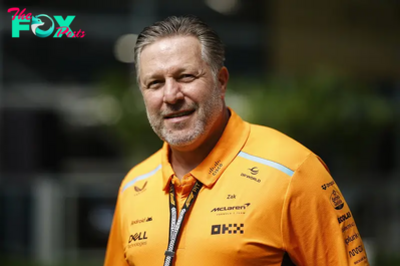Business
The UAE Is on a Mission to Become an AI Power
At an AI research lab on the edges of Abu Dhabi last year, an international team of 25 computer scientists were putting the finishing touches on a deep learning algorithm before sending it to be trained on 4,000 powerful computer chips. The AI system, which cost several million dollars to train, was funded by an arm of the Abu Dhabi government called the Advanced Technology Research Council (ATRC).
Despite the government’s substantial investment, ATRC director Faisal Al Bannai decided to release the finished model online for free. If it was as good as the team believed, the boost to the United Arab Emirates’ reputation would be all the return the government needed on its investment, he reasoned. The plan worked. When the AI, named Falcon after the UAE’s national bird, was publicly released last September, it became a sensation. By some measures it was the best open-source large language model (LLM) available in the world at that point, outperforming top offerings from Meta and Google. Before Falcon’s release, “we were not on the map,” says Al Bannai. But “with 25 people, we did that. And it really created a surprise.”
Around the world, computer scientists took notice. “The UAE was not well known, before, for training models,” says Philipp Schmid, an AI researcher at the machine-learning platform Hugging Face based in Germany. “But then, by more or less the next day, we knew that they can train models, they open-source their models, they publish research around it, which benefits all.”
Falcon seemed to be the first sign of the UAE’s rapid rise in the world of AI. In this realm, the U.S. and China are the world’s undisputed heavyweights. But, sandwiched between the two superpowers, the United Arab Emirates is beginning to punch above its weight. The tiny Gulf nation of some 10 million, which appointed the world’s first AI minister in 2017, is betting big on the Technology as an engine for diversifying its economy away from oil, and for projecting geopolitical iNFLuence beyond its borders. In recent months, some of Silicon Valley’s most powerful CEOs have visited the UAE, from Microsoft’s Satya Nadella to Nvidia’s Jensen Huang.
But while solidifying the Emirati government’s belief that it has what it takes to become an AI power, Falcon also made a larger point: if this powerful new Technology is indeed to usher in a new world, it will be shaped by those with the greatest wealth and power in the one that currently exists.
Read More: The UAE’s New Leader Is Turning the Tiny Kingdom Into a Major Power Player
Emirati officials point to their advantages: Huge cash reserves to pay for top-tier “compute,” or computing hardware. Enough electricity—powered by oil, natural gas, and solar—not only to power that hardware, but also to make building new data centers more attractive than in Europe and other parts of Asia, where grids are battling energy bottlenecks. And though most of the 88% of the foreigners who populate the UAE toil at low-wage jobs, officials express confidence that year-round sun and the absence of income tax can attract the world’s top AI researchers, who are in high demand.
If they come, it would be to join an effort unhindered by internal critics, or other essentials of democracy. The Emirati state has spent the past two decades digitizing government services, and authorities here have a more permissive attitude than those in many Western countries to using citizens’ anonymized data for training AI. In fact, the UAE casts its autocratic, state-capitalist government as a plus—giving it the ability to quickly marshal its significant resources to achieve what it sees as an epochal project. “What we have in the UAE that’s going to give us an advantage is the decision-making power to make it happen,” says Al Bannai, the official in charge of the ATRC. “Yes, you need some checks and balances. But in many places it is overdone.”
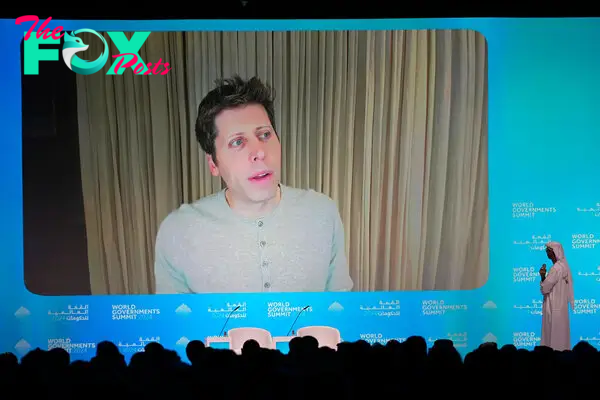
Abu Dhabi’s ruling family controls several of the world’s largest sovereign wealth funds, worth a combined total of some $1.5 trillion. Those funds have historically been used as vehicles to diversify the UAE’s oil wealth into growth industries, making them a perfect match for leaders of AI companies seeking the capital necessary to participate in the AI race. The country is also emerging as a player to watch in the world of difficult-to-produce computer chips used to train powerful AI systems. In February, OpenAI CEO Sam Altman met with investors seeking up to $7 trillion to build an AI chipmaker that could compete with market leader Nvidia, the Wall Street Journal reported. Prospective investors included Sheik Tahnoun bin Zayed Al Nahyan, who controls Abu Dhabi’s main sovereign wealth fund and is a brother of the UAE President.
Read More: What to Know About the U.S. Curbs on AI Chip Exports to China
If successful, the efforts could catapult the UAE to a position of outsize influence in the world of AI. (The country will have competition. Saudi Arabia, its larger neighbor, is earmarking $40 billion for a push into AI, a sum that would make it one of the largest investors in the space, the New York Times reported on March 19, citing unnamed sources.) The UAE has already found itself caught in geopolitical crosswinds, especially as tensions rise between the U.S. and China over advanced semiconductors, the chips Washington is trying to keep from Beijing. “It’s the transfer of technology, information, and intelligence to China that the U.S. is really concerned about,” says Neil Quilliam, an expert on Gulf geopolitics based at the London international-affairs think tank Chatham House. “The U.S. has basically been saying to the UAE: Don’t go down that path. That’s going to cross the line with us.”
At a research and development lab in Dubai on a rare rainy evening in February, the UAE’s AI Minister Omar Al Olama sits down to discuss the nation’s AI ambitions. On the other side of a glass wall separating the meeting room from the lab floor, an autonomous delivery robot designed by government-funded researchers lies dormant, the same bright white as the minister’s thobe.
The 34-year-old Al Olama reels off a list of ways AI could improve the quality of life in the Gulf nation: reducing road traffic, improving hospital capacity, cutting down on state bureaucracy, even creating an AI-enabled tour guide for tourists. Increasing quality of life, Al Olama insists, is the main driver of the UAE’s ambitions here. Economic growth is an incentive too. “We do believe that through artificial intelligence, we’ll be able to expand our economic footprint and really become one of the big players in certain domains,” he says.
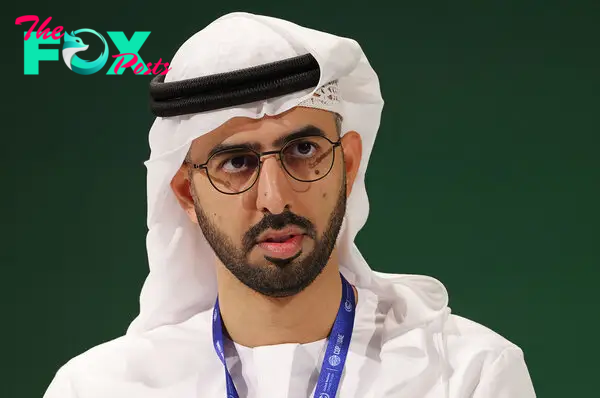
Al Olama was just 27 when he was appointed to his role in 2017, and given the task of turning the UAE into a leading nation in AI by 2031. “Omar has unique credibility as the first AI minister on the global stage,” says Amandeep Singh Gill, the U.N. Secretary-General’s envoy on technology, who has worked closely with Al Olama on a U.N. effort to build global consensus on AI. “He’s very personable. Without airs, he moves in and makes friends with people. His youth is an essential part of that charisma.”
Read More: What the U.N.’s AI Advisory Group Will Do
Al Olama has friendly relationships with diplomats and Businessmen alike. Pacing the stage at the World Governments Summit (WGS) in Dubai in February, he joked with Altman, who appeared on the screen behind him via video call. “I’m looking to raise $7 trillion, if you’re interested in joining,” Al Olama said, referring in jest to headlines that had broken the previous week. “If you figure out how to do that, please let me know,” Altman replied with a smile. “I’d be very curious.” (WGS, where Al Olama is vice chair, is a media and event partner of TIME.)
Offstage, Al Olama is coy about the reports that Altman had attempted to raise funds equal to almost a third of U.S. GDP from investors including the UAE. “I’m not sure, to be honest, how real that is, the $7 trillion project. I think someone might have misquoted either Sam or the UAE government on that. Seven trillion is an audacious number, to say the least.”
Still, Al Olama says, the UAE has the “ambition to proceed” in the direction of playing a bigger role in global semiconductor manufacturing. The world, he says, “is looking for a decentralization of semiconductor production” beyond Taiwan, the geopolitical flash point in China’s backyard where most high-end chips are currently manufactured. The UAE’s working with the U.S. to expand that bottleneck “is going to be a win-win situation for everyone, because it ensures stability, it ensures economic cohesion between the UAE and the U.S.,” he says.
Read More: Dubai Decrees Itself the A.I. City-State of the Future
But Al Olama is most animated while discussing not hardware, but software. Falcon was released under an open-source license, and in February the ATRC committed $300 million toward the Falcon Foundation, a nonprofit body to oversee the continued open-source development of the LLM series. The UAE’s commitment to open-sourcing AI has been a diplomatic success, winning it friends in Global South countries that would otherwise be shut out of costly AI development. “Part of the motivation is obviously finding a niche for the UAE, and national comPetitiveness,” Gill says. But “the UAE is interested in helping other countries access compute, access these open-source models, so that they can develop AI applications in their own contexts.”
A big part of the thinking behind the UAE’s open-source commitment, according to Al Olama, is to attract top AI researchers away from lucrative jobs at Silicon Valley tech companies by giving them a sense of purpose. “If you bring a person who is the top scientist in this field, and you tell him you have two options: either work for-profit, closed-source, and just benefit yourself, or work on something that’s open-source that will really change the lives of people, what would you decide?” Al Olama says. “We realized that the attraction of talent is much better when people actually believe this is for the greater good.”
Read More: The 3 Most Important AI Policy Milestones of 2023
The number of AI workers in the UAE quadrupled to 120,000 from 2021 to 2023, Al Olama recently told Bloomberg. “It is a place made out of heaven for researchers in AI,” says Al Bannai, the head of the Abu Dhabi government’s ATRC. “You have the compute, you have access to data, and you have the commitment to fund the research you’re doing. There aren’t many places that have all of this under one roof.”
But the UAE also faces challenges when attracting top researchers. For all its low taxes, sunshine, and glamour, civil liberties and internet freedoms in the UAE are subject to “significant” restrictions, according to Freedom House, which rates the country as “not free.” LGTBQ+ activity is criminalized, and labor abuses among the migrant workers brought in to support the UAE’s service and construction industries are well documented. The country is not listed among the top six where most elite AI researchers work, according to an analysis by researchers at the Paulson Institute think tank. Of the 14 authors named on the Falcon research paper, eight have LinkedIn profiles indicating that they are not based in the UAE. “Are they going to be able to attract talent to move to the UAE who can make a million-plus dollars anywhere?” says Dylan Patel, chief analyst at SemiAnalysis, an AI-industry monitor. “I’m skeptical.”
Still, officials in Abu Dhabi, the capital, remain bullish. Al Bannai says Falcon’s successors will be even more powerful—and not only because the government is willing to commit more money and computing power to the effort. “We have a third asset which we have not [yet] utilized,” he says. He is referring to private data that is not normally available on the internet, such as records held by hospitals and state-backed industries. “Try to go to some countries and get access to data to train,” Al Bannai says. “OK. Good luck.”
The UAE, he says, has permitted AI companies to train models on citizens’ medical data stripped of names and identifying information. Similar efforts in countries like Britain have run into legal challenges and opposition in the press—just the kind of obstacles that, in the UAE, are easier to brush aside. “You can either debate forever or you can move,” Al Bannai says. “We have decided to move.”
Last summer, OpenAI CEO Altman traveled to the UAE as part of a global tour capitalizing on the success of ChatGPT. “I am hopeful that the region can play a central role in this global conversation,” he told the crowd, praising the attendees who he said had been discussing AI since “before it was cool.”
Four months later, the UAE’s top AI firm, G42, announced a partnership with OpenAI. The companies would collaborate “to deliver cutting-edge AI solutions to the UAE and regional markets,” a post on G42’s website said, without disclosing specifics. At the top of the page, the post was illustrated with a photograph of a smiling Altman shaking hands with G42’s CEO Peng Xiao, apparently taken during Altman’s trip to the Gulf earlier that summer. It was another illustrious partnership for the state-linked Emirati firm, which in 2023 signed a $100 million deal with the California company Cerebras to build what it calls “the world’s largest supercomputer for AI training.”
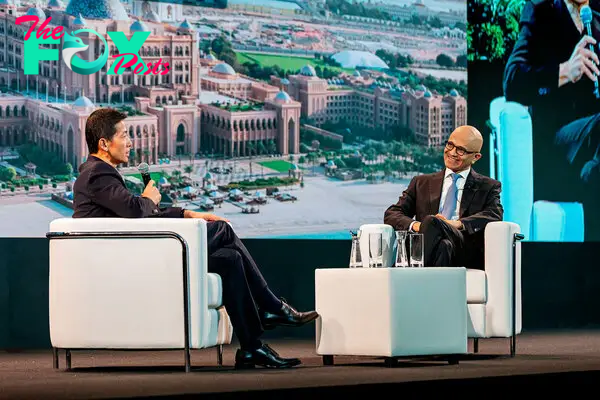
Shortly after G42 announced its partnership with OpenAI, geopolitical tensions burst into the open. In November, the New York Times published a report detailing concerns within the U.S. intelligence agencies about G42’s ties to China. National-security officials, the report said, were concerned that advanced American technologies and sensitive data of U.S. citizens could make their way to China via G42, which had relationships with Chinese companies including Huawei. In a high-level meeting at the White House just days before Altman’s trip to Abu Dhabi, the Biden Administration had pushed the UAE to sever its links to Beijing, according to the Times. Two months later, it tightened rules on chip exports to an undisclosed list of Middle Eastern countries, amid concerns over the chips ultimately reaching China.
G42’s agreement with OpenAI may have been less than it appeared. The Emirati firm had simply signed up to become one of OpenAI’s many enterprise clients, according to a person with knowledge of the matter. The agreement granted G42 access to OpenAI’s application programming interface, a tool that allows companies to integrate ChatGPT and GPT-4’s capabilities into their own apps. G42 is not an investor in OpenAI, and is bound by OpenAI’s usage policies, the person added. An OpenAI spokesperson declined to comment on the record.
Still, it was an example of the kind of relationships with foreign tech firms that the UAE government has long encouraged its domestic companies to enter into, according to Alexis Serfaty, director of geotechnology at the political risk consultancy Eurasia Group. “The idea there is to expand links into the global value chain and enable as much technology transfer as possible.”
In the months that followed the White House meeting, G42 began cutting its ties to China. The company said it was phasing out Huawei gear and had sold its roughly $100 million stake in ByteDance, TikTok’s Chinese parent company. “We cannot work with both sides,” Peng told the FT. G42 did not respond to requests for comment.
Today, Emirati officials are keen to stress their closeness to Washington. “The UAE has been a strategic partner to the U.S. since our founding, we’ve gone through a lot,” says Al Olama. According to Serfaty, the UAE moved quickly to distance its tech industry from China’s because officials considered it crucial to retain access to the high-end semiconductors subject to American sanctions. “Even if [the UAE is] uncomfortable removing themselves from Chinese hardware, ultimately, they want to ensure access to U.S. chips.”
When it comes to building new semiconductor factories, Altman has not denied that he is seeking funds for a new chipmaking venture. But he has urged skepticism of the $7 trillion price tag reported by the Journal. “You shouldn’t believe everything you read in the press,” Altman said at an event on Feb. 21. “The kernel of truth is that we do think investing a lot of money in AI compute, energy, and data centers is going to be important to deliver the amount of services people want.”
The question is where the investment will happen. Taiwan, which dominates chip production now, is a democracy that’s vulnerable to China militarily. Gulf kingdoms share China’s autocratic model for governance but historically fall in line with Washington on security. “If they are able to diversify the existing supply chain, make it more resilient, that could certainly benefit the U.S.,” says Serfaty. “On the other hand, it depends on which foreign government [Altman] and his partners ultimately partner with, and that could very well conflict with U.S. national-security strategy.”
In the end, the U.S. government may have effective veto power over the UAE’s ambitions. Semiconductors are at the core of the Biden Administration’s CHIPS and Science Act, which includes billions in incentives for the onshoring of semiconductor manufacturing to the U.S. itself. Altman has reportedly met with U.S. Commerce Secretary Gina Raimondo to seek her blessing for his project to create an Nvidia competitor, and has reportedly said he would not proceed without U.S. government approval. (The Commerce Department declined to comment.) Even if the UAE does stump up the money for new semiconductor factories, those factories may end up being located on U.S. soil.
Back in the government-funded R&D lab, Al Olama projects an air of confidence about the UAE’s future role in the AI landscape. “We always gravitate toward ambition as a country,” he says with a smile. “We are very ambitious people.”
—With reporting by Leslie Dickstein
-
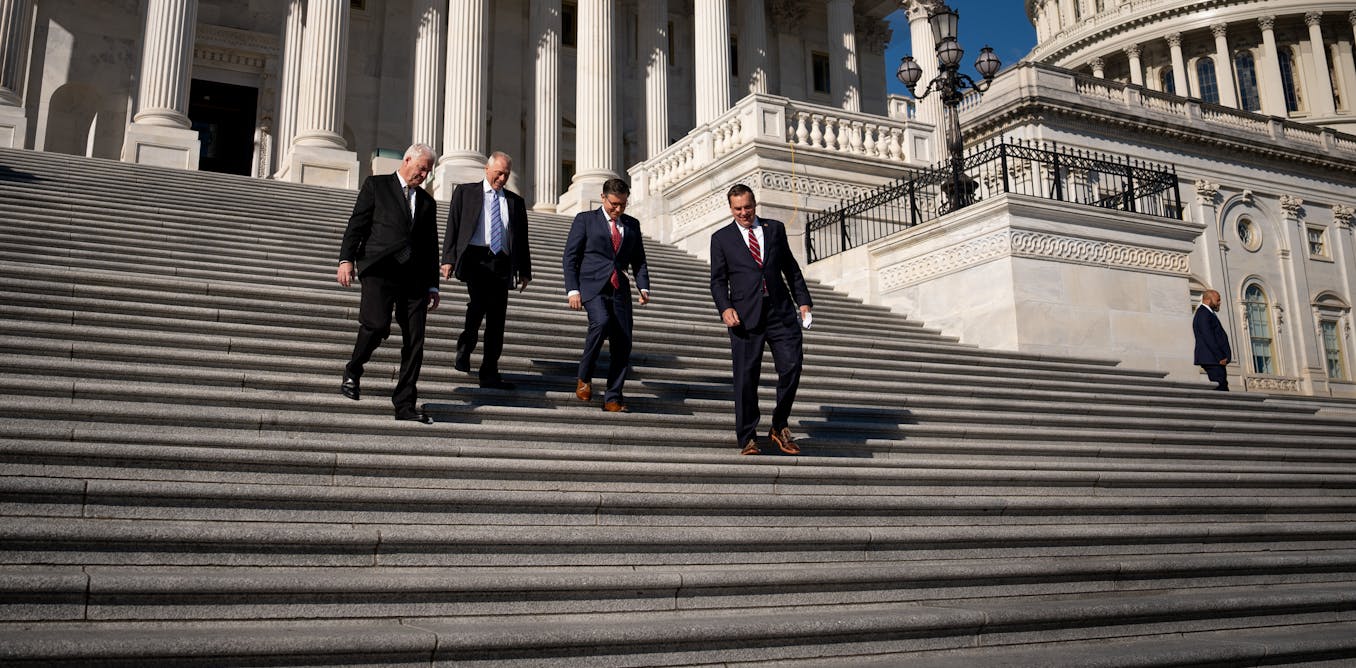
 Business5d ago
Business5d agoUS House passes measure that could punish nonprofits Treasury Department decides are ‘terrorist’
-
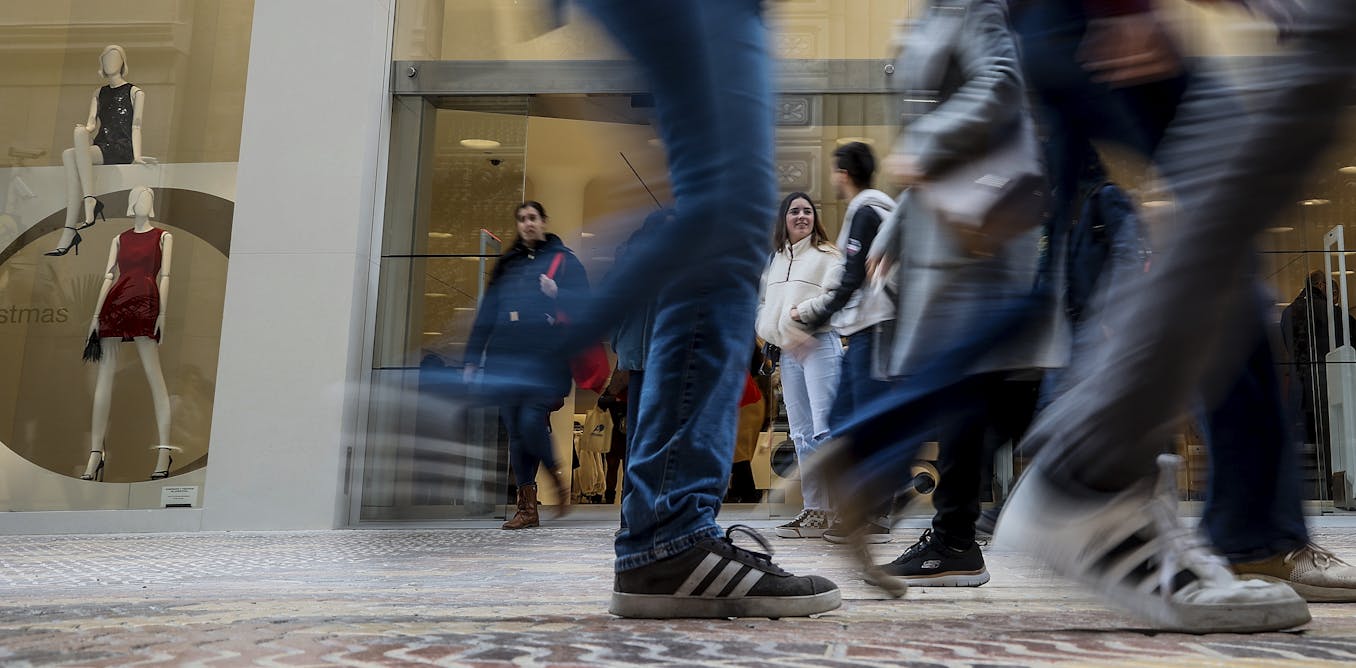
 Business5d ago
Business5d agoFast fashion may seem cheap, but it’s taking a costly toll on the planet − and on millions of young customers
-

 Business6d ago
Business6d agoNew Information: These HV Big Lots Are Now Staying Open
-

 Business6d ago
Business6d agoBrush Fire Rages On Near Butternut In Great Barrington, MA
-

 Business6d ago
Business6d agoU.S. Antitrust Regulators Seek to Break Up Google, Force Sale of Chrome Browser
-

 Business6d ago
Business6d agoSuccessful White Men Alone Can’t Create America’s Economic Future
-

 Business6d ago
Business6d agoThe Rise of Silent Services
-
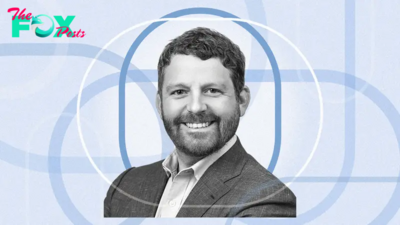
 Business1w ago
Business1w agoTim Latimer
